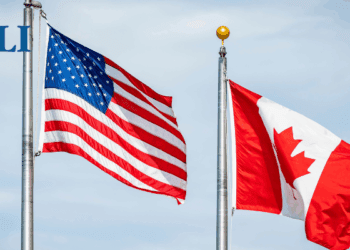Writing in iPolitics, Peter Milliken, Former Speaker of the House, reflects upon the arguments which could be presented in the upcoming Great Canadian Debate presented by the Macdonald-Laurier Institute entitled RESOLVED: Muslim immigration is not threat to Canada or the West. Peter Milliken poses the questions “Do these atrocities offer a glimpse into a violent future? Or are they the sort of isolated incidents we can expect as Europe and North America adjust to higher levels of Muslim immigration? Won’t the vast majority of Muslim immigrants live happily and peacefully among their new fellow citizens?”
Peter Milliken, Feb. 21, 2014
“Muslim immigration is no threat to Canada or the West”. That’s the resolution to be debated at the next Macdonald-Laurier Institute debate on Feb. 27.
Those who believe the threat is serious and will get worse can look to growing immigration numbers and incidents of violence in the Muslim community. Setting aside the attack on the U.S. on 9/11, filmmaker Theo Van Gogh was murdered in the streets of Amsterdam by a Dutch-Moroccan Islamist with ties to terrorist groups in November, 2004. In May of 2013, British Army soldier Lee Rigby was hacked to death by two British citizens of Nigerian descent who were converts to Islam. In 2005, London was paralyzed by fear when terrorists killed 52 people and injured 700 in attacks on buses and subways.
Right after that attack, 32 per cent of British Muslims polled agreed with this statement: “Western society is decadent and immoral and Muslims should seek to bring it to an end.”
In France, the tensions between Muslims and non-Muslims have been growing for years, to the point that parts of Paris are no-go zones for the police. Within France there are Muslim communities demanding to be left alone and governed by Islamic, rather than French, law. Tensions are also growing in other countries such as Sweden as Muslim populations grow, leading some to fret about the prospect of a future ‘Eurabia’.
Another worrying trend is that the West has become fertile ground for recruiting fighters for wars in the Middle East. And we aren’t immune here in Canada. Last year, two Muslims were accused in an alleged al-Qaida plot to derail a passenger train in Niagara Falls.
Do these atrocities offer a glimpse into a violent future? Or are they the sort of isolated incidents we can expect as Europe and North America adjust to higher levels of Muslim immigration? Won’t the vast majority of Muslim immigrants live happily and peacefully among their new fellow citizens?
After all, Europe and North America have successfully integrated numerous ethnic groups in the past — albeit with growing pains — without major disruptions to our political systems and culture. Look at how we’ve been able to accommodate large waves of Catholic, Jewish, Southern European, Indian, Asian and African immigrants. There was a time when we designated immigrants not as Muslims but as Turks, Bengalis, Nigerians, Persians, Arabs or Indonesians. Is the problem that many now classify all Muslim immigrants as Muslims, with all that implies?
And the numbers may have been exaggerated. It is true that Muslim numbers have risen in Europe from around 300,000 in 1950 to almost 20 million today. But as Doug Saunders argues in his book The Myth of the Muslim Tide, by 2050 that number will double to about 10 per cent of the population. “This is not exactly exponential growth,” he argues. In other words, Muslims likely will never come anywhere near forming a majority in Europe.
The argument also can be made that Muslims will embrace Western ideals rather than seeking to impose illiberal values. In other words, current concerns about Islamic immigration may prove to be unfounded in the future, as were concerns about other immigrant groups who aroused suspicion in the past.
Muslim immigration is a highly contentious issue in the West that will be debated by two very qualified thinkers on the subject. Salim Mansur will argue against the resolution. Professor Mansur has long been a critic of Muslim extremism. He is a founding member of Canadians Against Suicide Bombings and an adviser to CIDA and the Center for Security Policy in Washington D.C. He is a professor of political science at Western University in London, Ontario, where he teaches international relations with a focus on the Middle East and Asia. His latest book is Delectable Lie: A Liberal Repudiation of Multiculturalism.
Mr. Saunders, the Globe and Mail’s European bureau chief, will be arguing in support of the resolution. He is an award-winning journalist who won the prestigious Donner Book Prize for Arrival City: The Final Migration and Our Next World.
The debate will take place Feb. 27, 2014 at 7 p.m. at The Canadian War Museum in Ottawa. For more information click here.
Former House of Commons speaker Peter Milliken is moderator of the 2013-14 season of the Macdonald-Laurier Institute’s Great Canadian Debates series.
The views, opinions and positions expressed by all iPolitics columnists and contributors are the author’s alone. They do not inherently or expressly reflect the views, opinions and/or positions of iPolitics.





